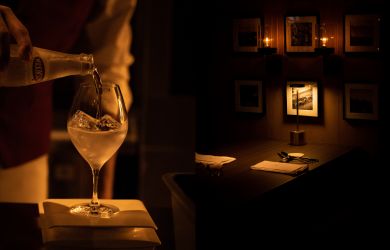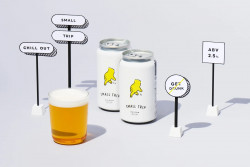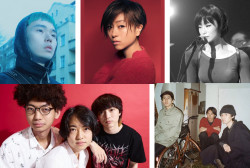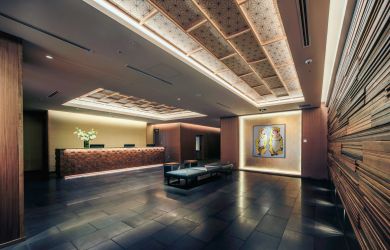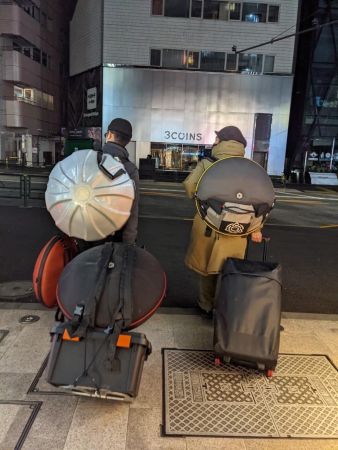
July 21, 2022
The Japanese Salaryman Who Quit His Job with Nothing but a Handpan
…that he didn’t know how to play
With the lights dimmed in the stylish common area of Taipei’s Star Hostel, guests crowd around Kashiwa Hang, mesmerized by the soothing, resonant tone of his handpan — an instrument that has only been around since the late 2000s.
The 40-year-old Chiba-based musician is in Taiwan for six months, where he’ll be taking to the street to perform and sell his original music CDs, making more fans, friends and collaborations along the way.
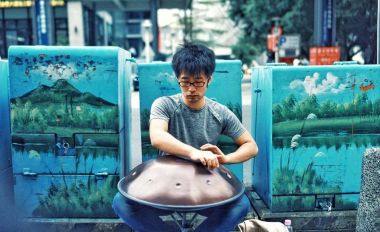
This lifestyle of traveling and performing wasn’t always what he had in mind for himself.
“The handpan wasn’t my dream, I just wanted to quit my job,” he tells Metropolis. “This dream to be a handpan artist came later. Originally, I wanted to be an architect and open my own architecture office.
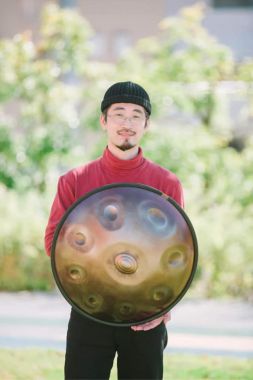
“I was an architect for 10 years. I worked for both small and large construction companies because I wanted to get a lot of design experience. After seven years, I was able to get a license, and I needed three years of experience to open my own office, so I started working at a small architect design office.
“The office was always really busy, so I couldn’t sleep a lot. I was always taking the last train, and sometimes I would have to sleep in the office. There wasn’t a lot of staff but there were a lot of jobs, and there was always another deadline.
“This lifestyle isn’t healthy — not just for the body, but for the mind. Little by little, my mental and physical health was suffering. I was always tired, always sleepy. Eventually, I collapsed onto my desk at work.
“It’s hard work, but this lifestyle is kind of normal in Japan. There are always so many people on the train in the morning, and almost everyone gets home late. This lifestyle is ‘live to work.’ I wanted to escape it.”
The escape
A great street performer draws you into their world and for a moment, the stresses of daily life melt away. For most, the experience is powerful, yet fleeting — a welcomed detour on the way to a meeting with friends or on your way to run an errand. For Kashiwa, it was something much bigger.
“I saw a musician playing guitar and singing in front of Kashiwa Station, Chiba. It was really nice for my heart, it was really touching. He wasn’t a professional, he was a salaryman who had quit his job. His dream was to become a musician, so he would work a part-time job every day and after work he’d come to the station to perform. It was really interesting for me.”
At the end of 2016, Kashiwa left his job at the architecture office and changed his name, signifying the start of his brand new life. “I did not have any music experience and my singing is not good,” he admits, “so I thought maybe an instrument would be best for me.”
He decided to buy a handpan and head to Taiwan. “I didn’t have a passport, so I applied for one and had to wait two weeks. That gave me two weeks to practice, so I started making sounds in Kashiwa city. My playing wasn’t good then, it was just making sounds, but it was really comforting for me, hearing beautiful sounds was really good for my mind.”
Freedom and connection
On top of performing and composing, Kashiwa also teaches handpan, creates videos and maintains a travel diary that he writes in both Japanese and English. This year, he’s started making covers of traditional Japanese songs that he hopes will introduce the hand pan to new listeners.
“The best part is that I can decide everything. If I want to go to Taiwan, I can go to Taiwan. If I want to do this job, I can do it. If I want to refuse, I can refuse. The handpan is great because there is no need for language, so if I go to another country and perform, everyone can feel something. Sometimes I do a live show in exchange for accommodation — I play music, they prepare a bed for me.
“Two weeks ago I took a trip through Aichi, Ehime and Kochi prefectures. I met another handpan player, we did a session and ate dinner together. We have a network of handpan friends everywhere. Working in an office, there is no conversation, you just do your job, so it’s the complete opposite of my old life.”
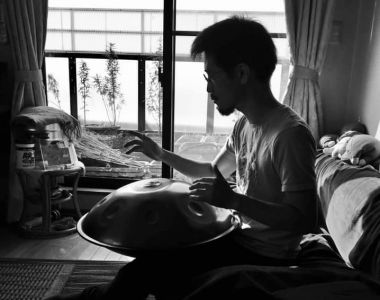
Kashiwa offers some wisdom, a testament to the age-old phrase that all great journeys start with a single step. “I tried playing handpan on the street. I thought maybe I could be a musician. If I try, it will open doors, or it won’t — I’ll find out fast, but to not try is nothing, nothing changes. Really simple.”
